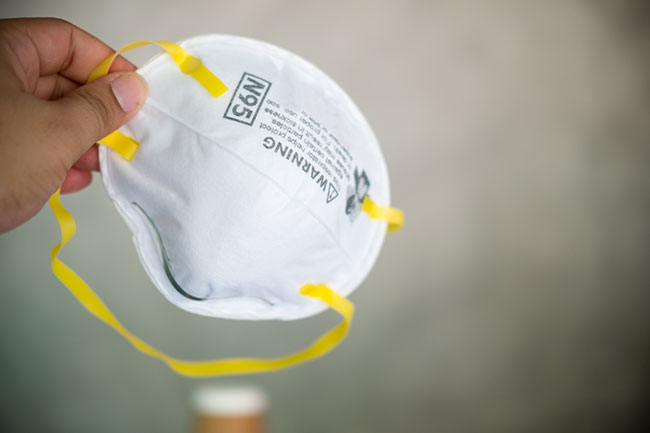
News
Education & Training
UN highlights the unique challenges faced by Disabled Injured Workers during COVID-19
May 19, 2020 By Newswire
 PPE has always played a big role in construction, but workers are sure to be wearing it in more situations as they get back to work in the coming months. Photo: Adobe Stock
PPE has always played a big role in construction, but workers are sure to be wearing it in more situations as they get back to work in the coming months. Photo: Adobe Stock Thunder Bay, Ont. – Michelle Bachelet, the UN High Commissioner on Human Rights recently gave a statement that Canadians living with disabilities—including permanently injured workers—face disproportionate challenges during the pandemic.
“People with disabilities must often rely on others for help with daily tasks,” she reminded, something that is increasingly difficult during COVID-19. “…our efforts to combat this virus won’t work unless we approach it holistically, which means taking great care to protect the most vulnerable and neglected people in society, both medically and economically.”
Injured workers face a bevy of unique changes to their day to day life during these difficult times, including:
- A closure of therapy services that had been relied upon for pain management.
- Significant reductions in home care.
- Increased reliance on family members.
- Heightened costs associated with essential goods delivery and safe transportation.
Here in Canada, financial supports available on disability benefits remain well below the levels offered to other Canadians receiving CERB packages, and significant concerns remain about triage policies for disabled Canadians in emergency situations during medical equipment shortages. At the same time, support for the employers is at an all-time high.
Within days of COVID-19 related business shutdowns, the Province of Ontario and the Workplace Safety and Insurance Board (WSIB) delivered a premium-deferral package for employers that offered 1.9 billion dollars in immediate relief. In the six weeks that have followed the bailout for employers, no measures have been adopted to assist injured workers themselves—including those who have become sick with Coronavirus.
In fact, the WSIB has insisted on adjudicating the case of every worker who becomes ill with Coronavirus separately, an arrangement that has resulted in the approval of just 513 out of almost 3500 claims submitted claims, with more than 2807 sick workers stuck in a very slow moving lineup to get any decision at all.
“Workers who are putting their health on the line to provide critical care and maintain supply chains have to know that they will be cared for—not fought against—if they get the virus,” says Janet Paterson, president of the Ontario Network of Injured Workers’ Groups (ONIWG), an umbrella organization representing thousands of permanently injured workers in the province. “Imagine coming home from work at a hospital, grocery store, or care home with Coronavirus and, on top of knowing you’re gravely ill and you’ve put your family in serious danger, you need to engage in a battle with the compensation board to prove where you got this illness?”
ONIWG is among countless groups in Ontario and across Canada calling on compensation boards to follow the lead of multiple American jurisdictions and institute a “presumption” that would allow those working during the pandemic to receive automatic coverage if they become ill with virus, in much the same way that police and paramedics receive automatic coverage for PTSD.
Print this page